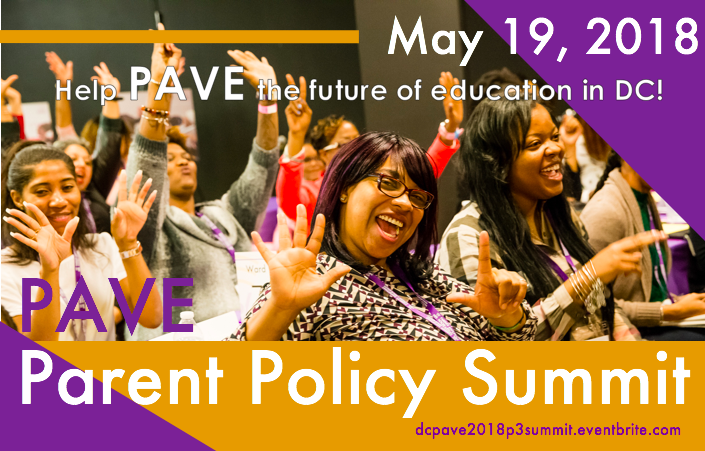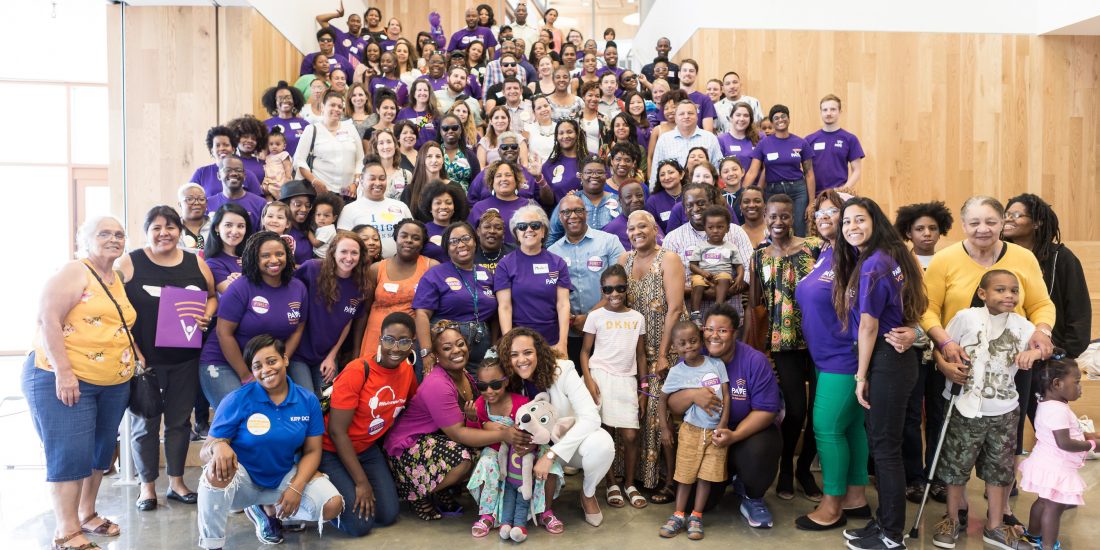
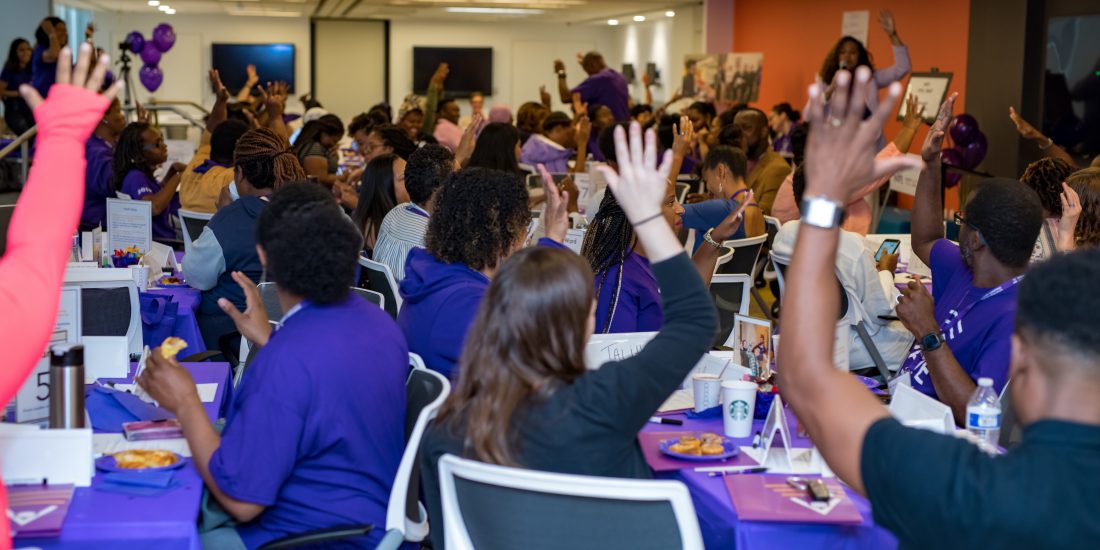
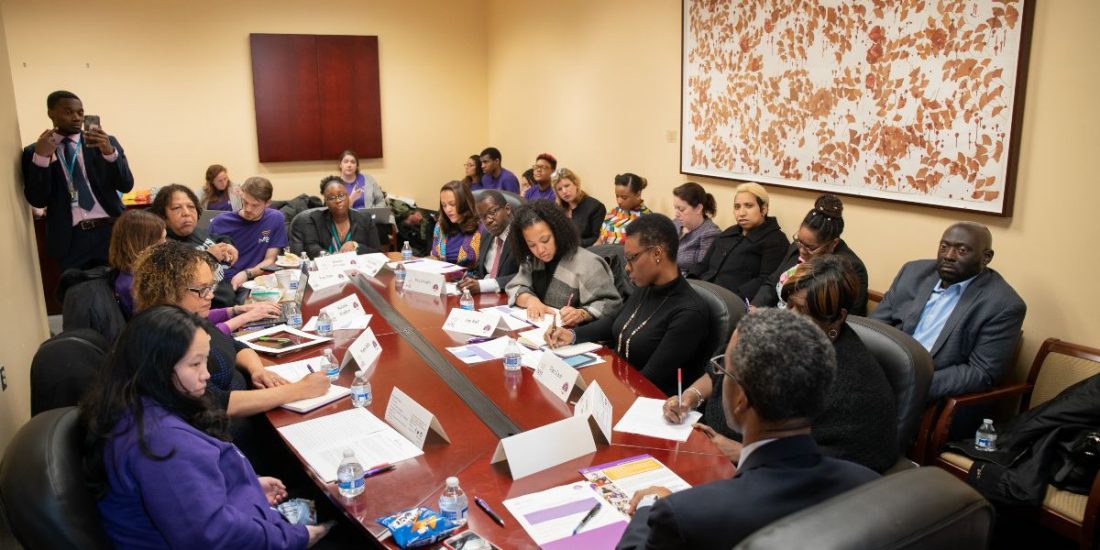
2022-2023
The Problem
In DC, not all kids have access to high-quality Out-of-School Time (OST) programs due to many significant barriers, including:
- Cost,
- Transportation,
- Access to information,
- Finding programs that interest their children,
- And more.
Our Vision
Every family has access to a high-quality OST program for their children that supports their individual needs where they can explore their passions and enrich their learning – regardless of income level or where they live.
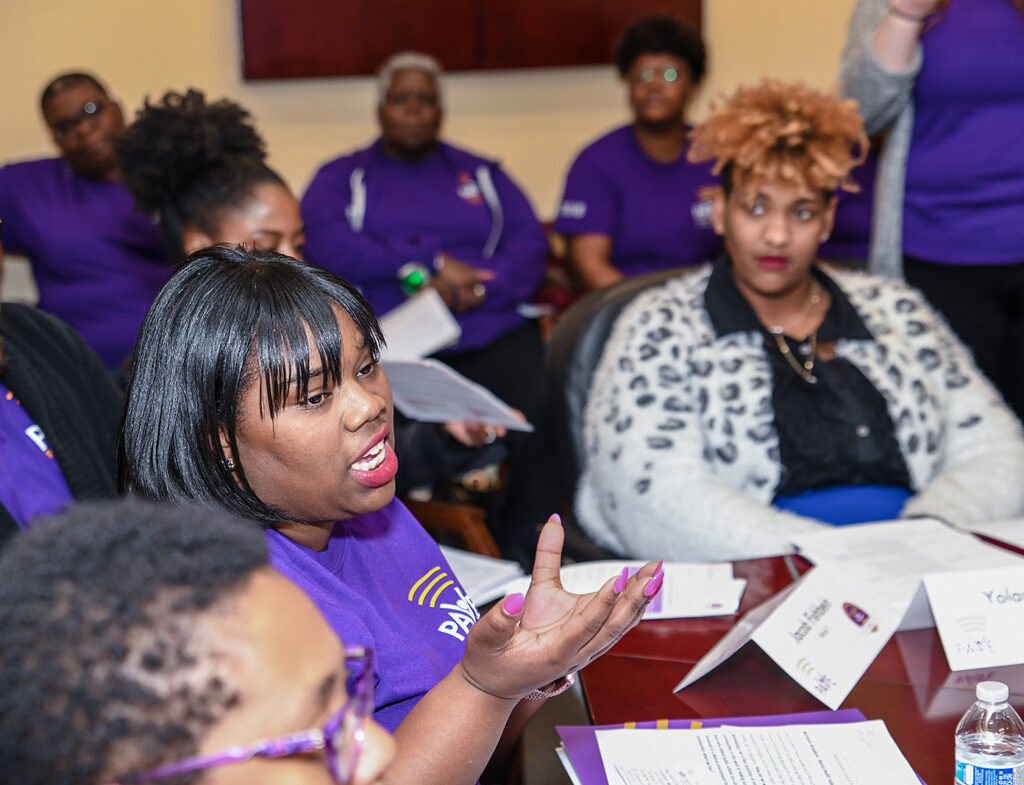
In order to make PAVE parent leaders' vision a reality, we have identified a set of solutions that we believe our DC leaders should work with communities and families to prioritize.
Policy Solutions:
- Provide targeted resources to add OST seats close to where families already are (e.g. schools, recreation centers, libraries) that can support their needs (SPED support, staff training), and include these programs in Safe Passage expansion plans.
- Offer pay for teachers/school staff, college students, and community organizations to run programs and offer guidance to help set-up their programs.
- Cover security costs for OST programs at schools so providers don’t have to dip into their already slim budgets.
- Ex: Consider increased grants for OST programs’ operational costs.
- Provide more funding for “earn while you learn programs” for high school students during the school year.
- Provide high-quality training for all government-funded OST programs to support students with disabilities.
- Create a community advisory group with parents, students, OST providers, and educators with representative diversity – especially SPED, ELL, Wards, etc. to provide feedback on how to improve the Learn24 site and, in the future, any other site to find programs.
- The majority of representation of this group should be people whose children participate in DC-funded OST programs.
- Include a stipend to compensate participants for their time and participation.
- Change income-level and documentation status requirements for vouchers/financial aid.
- Create a sliding scale for OST scholarships that is adjusted for DC cost of living and family size.
- Residents who are not documented should be eligible to receive vouchers or scholarships for OST.
- Expand scholarships to cover not only program costs, but equipment and other cost barriers for parents.
- Create a lottery sign-up system that provides preference to families with the greatest need (i.e. based on income-level, families with students with disabilities), similar to the My School DC lottery.
- This process to improve equitable access must be done in tandem with adding OST seats as there are not enough affordable, quality programs for residents.
- Advocate for the OST Commission to have inclusive engagement by:
- Allowing the public to attend meetings and communicating about commission meetings and committee meetings widely.
- Sharing accessible information publicly about where OST funding is going and how it’s being used.
- Integrate student and parent feedback in their strategic plan and share how it was incorporated.
- Attend school community events and inform families about the commission’s work.
- Ensure the OST commission completes legislative requirements (yearly grants reports, yearly needs assessment etc.)


